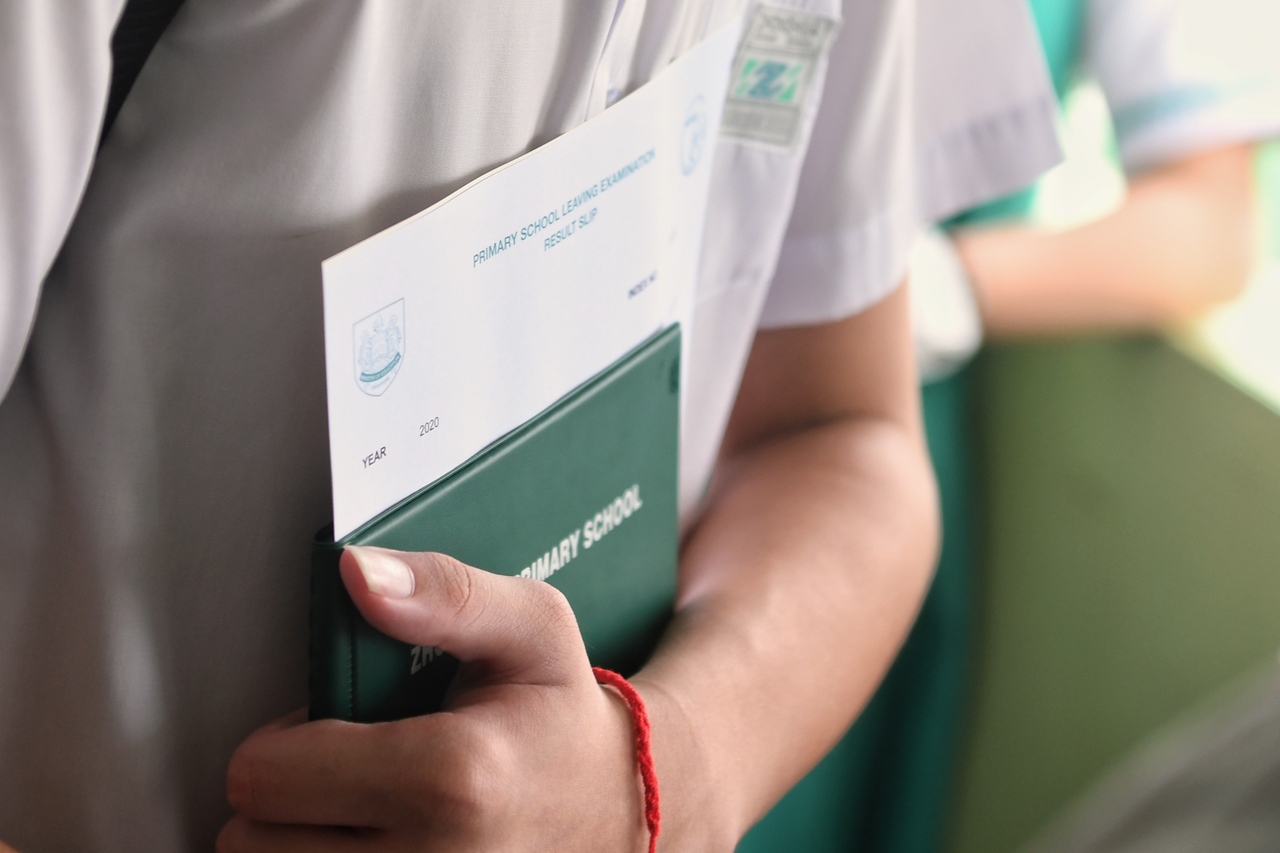PSLE candidates not marked on a bell curve, need not worry about getting every question right: MOE
Sign up now: Get tips on how to help your child succeed
The Ministry of Education's deputy director-general of education Sng Chern Wei talks to Senior Education Correspondent Sandra Davie on how the new PSLE scoring system could impact secondary school posting this year.
SINGAPORE - Moderation for marking in the Primary School Leaving Examination (PSLE) is not rigid and there is much deliberation involved, said deputy director-general of education (curriculum) Sng Chern Wei on Saturday (Oct 30).
He also assured parents that PSLE candidates are not marked on a bell curve in the new scoring system introduced this year.
Mr Sng was fielding questions from parents at The Straits Times' inaugural Smart Parenting webinar, which is aimed at helping parents understand how the new PSLE scoring system could impact secondary school postings this year.
The session was moderated by ST senior education correspondent Sandra Davie. About 2,000 parents attended the session virtually.
In response to a question on how the Ministry of Education (MOE) and the Singapore Examinations and Assessment Board (SEAB) account for disruptions to learning and how the marking process is moderated, Mr Sng said students' grades are not force-fitted into achievement levels.
Under the new scoring system, each standard-level PSLE subject will be scored using eight bands known as achievement levels (ALs). Each pupil will be given AL scores from 1 to 8 for each subject.
A pupil's PSLE score will be the sum of the ALs of the subjects they offer - usually four - with the best possible total score being 4.
Mr Sng said: "There is a common misconception among parents that there is a standard bell curve that students' performance fall into. That is not the case, there is no quota for the number of students who get AL1 or AL2 (in their subjects)."
He added that the pupils' performance fall into a natural curve due to exam papers having a distribution of hard, moderate and easy questions.
He said that because pupils typically find the PSLE accessible, their scores are often distributed towards the higher end. "Usually, almost 50 per cent of students achieve 75 marks or better, across all subjects."
Mr Sng also said markers are not rigid when looking at exam scripts, and they deliberate over answers that do not exactly fit into the marking scheme.
He said markers discuss whether these responses are also valid representations of pupils' understanding, and then incorporate them into marking schemes.
In response to a question on the possibility of the new scoring system increasing the need for students to ballot for places, Mr Sng said that based on last year's PSLE results, about one in 10 students will encounter a computerised ballot. Balloting to get into a school happens when all the other tie-breaking conditions are the same.
The tie-breaking conditions are whether the pupil is a Singapore citizen and how high the school was ranked in the pupil's list of choices.
Mr Sng said: "We do expect slightly more balloting as the likelihood of students having the same PSLE score is higher under the new system. The caveat is that a lot depends on the school choices that parents made."

Under the new scoring system, each standard-level PSLE subject will be scored using eight bands known as achievement levels.
PHOTO: ST FILE
Responding to questions on the difficulty level of the PSLE, he said the exams do not test pupils on topics outside the syllabus. While SEAB includes some questions to stretch the strongest pupils, there are many items that are quite easy.
He added: "Parents do not have to worry about getting every question right, that's not the intent of the examination."
Five breakout sessions were held afterwards, involving 10 principals from a spread of schools, including Mrs Low Ay Nar from Temasek Junior College, Mrs Rachel Lee from CHIJ Secondary (Toa Payoh) and Mrs Tan May Teng from Anderson Secondary.
There were two principals and 200 to 300 parents in each session, with the principals talking about their school's ethos and programmes, and answering questions from parents.
The principals gave their take on how the new scoring system might impact secondary school postings, and gave advice on how to pick the right school.
ST plans to hold a session next year on how to prepare for the PSLE.


